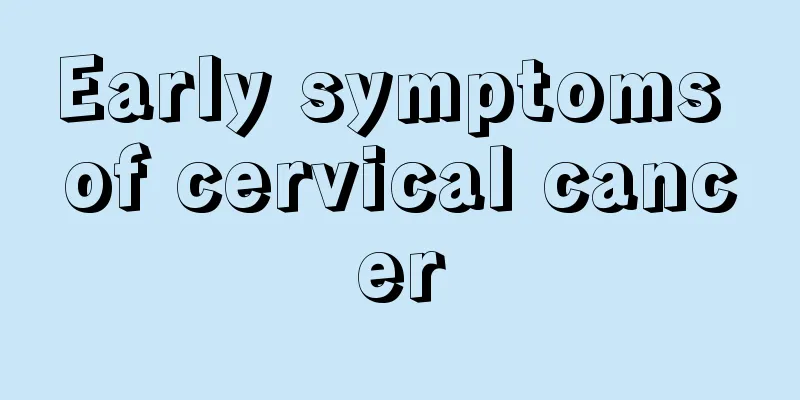Early symptoms of cervical cancer

|
Cervical cancer is a common gynecological malignancy, and the most important symptom in the early stage is contact vaginal bleeding. This vaginal bleeding usually occurs after sexual intercourse between couples or after a gynecological examination. Once this manifestation occurs, we must pay attention to further gynecological examinations, including liquid-based cytology, namely TCT examination. If abnormal cells are found to be further undergoing colposcopy biopsy, it can be diagnosed whether it is cervical cancer. If it is early cervical cancer, the treatment effect is still very good, mainly surgical treatment. If it is early, even carcinoma in situ may be treated with local cervical conization. In other cases, the cervix and bilateral adnexa need to be removed, and the entire uterus also needs to be removed, with postoperative radiotherapy and chemotherapy. What to do during cervical cancer? Cervical cancer is mainly diagnosed by cervical biopsy or cervical scraping pathology. The treatment of cervical cancer depends on the stage of the disease. Generally speaking, early cervical cancer can be cured by surgery; for mid- and late-stage cervical cancer, interventional arterial infusion chemotherapy is mainly used to reduce the lesions before surgical treatment. For those who cannot undergo surgery, a combination of radiotherapy and chemotherapy is mainly used. If there is ureteral invasion and pressure, ureteral dilatation may occur, and a double-layer J tube can be placed to improve hydrops. Is cervical cancer easy to treat? For the treatment of cervical cancer, an appropriate personalized treatment plan is formulated according to the clinical stage, age and fertility requirements, general condition, medical technology level and equipment conditions. The general principle is to mainly use surgery and radiotherapy, supplemented by chemotherapy. Early cervical cancer is treated with surgery, late cervical cancer is treated with radiotherapy, and chemotherapy is mainly used for late stage or recurrence and metastasis. Early cervical cancer can be cured, and about 50% of mid- and late-stage cervical cancer will recur within one year after treatment. Postoperative follow-up should be done well. However, the cause of cervical cancer is clear, and the screening method is perfect, so it is a preventable tumor. |
<<: Cervical cancer staging standards and treatment
>>: Is chemotherapy and radiotherapy for brain cancer painful?
Recommend
Can I lose weight by eating yogurt for dinner?
Many people love to eat yogurt. It is indeed a fo...
What to do if thyroid cancer causes swallowing problems
Thyroid cancer is a common endocrine tumor in cli...
External hemorrhoid surgery process
Patients with external hemorrhoids basically need...
The harm of prostate cancer bone metastasis
Prostate cancer is the sixth most common malignan...
How to prevent brain atrophy
To prevent cerebral atrophy, you need to pay atte...
White matter genetic genes
In fact, many people don’t know much about white ...
What are the dangers of a high lymphocyte ratio?
If the lymphocyte ratio is too high, it may easil...
Stomach discomfort when eating in early pregnancy
Women who are pregnant should supplement the nutr...
Can lilies be placed in the bedroom?
Lily is a flower with extremely high ornamental v...
Will thyroid cancer recur without chemotherapy?
Whether thyroid cancer will recur without chemoth...
What is the best way to remove formaldehyde with onions?
Onion is a vegetable with relatively high nutriti...
What is the best diet for lung cancer care? What are the common symptoms of lung cancer?
Lung cancer is a common lung disease that occurs ...
What kind of grapes are best for making wine
China's wine culture has a long history of th...
How to keep your hands from freezing
Every time winter comes, the temperature is very ...
What are the causes of bladder cancer?
In recent years, the incidence of bladder cancer ...









